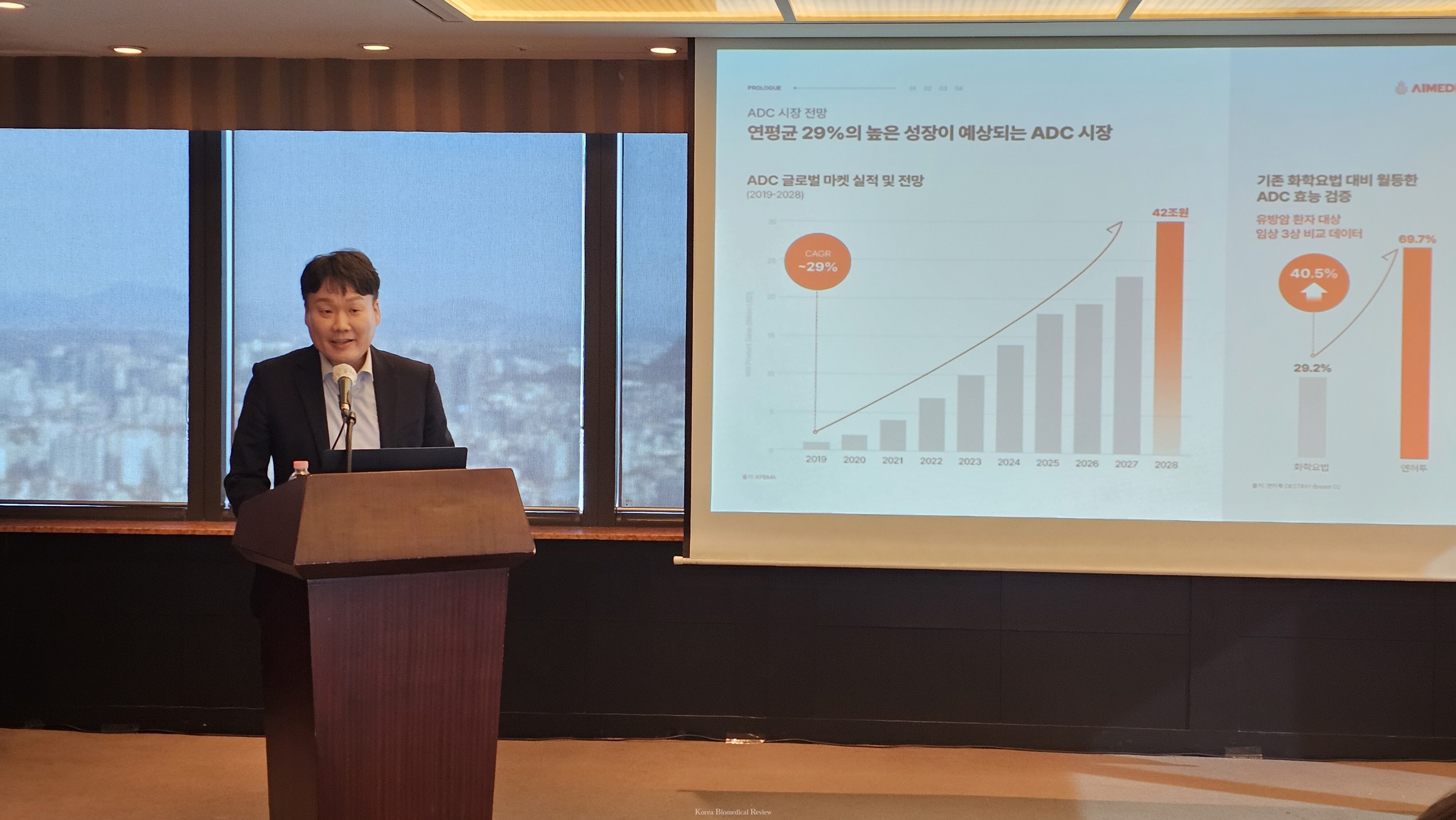Aimed Bio, the Korean antibody-drug conjugate (ADC) developer behind more than 3 trillion won ($2 billion) in global licensing deals -- including a landmark agreement with Boehringer Ingelheim -- outlined its pipeline strategy and IPO plans on Tuesday as it prepares to debut on the Kosdaq.

Founded in 2018 as a spin-off from Samsung Medical Center by Professor Nam Do-hyun, who now serves as chairman and chief technology officer, the company has built its business around a proprietary integrated ADC development platform known as P-ADC.
By combining patient-derived cells and tumor models, patient data, and hospital-embedded research capabilities, Aimed Bio focuses on discovering clinically relevant targets and advancing antibody-based ADC assets for cancers with high unmet medical need.
Aimed Bio drew industry attention in 2023 after receiving investment from the Samsung Life Science Fund -- becoming the fund’s only Korean biotech portfolio company.
The company’s rise has been marked by a series of large global licensing deals. After signing a major agreement with U.S.-based Biohaven last year for the ADC candidate AMB302, Aimed Bio concluded a landmark deal in October with Germany’s Boehringer Ingelheim valued at up to 1.4 trillion won ($955.5 million). In total, the company has signed more than 3 trillion won in licensing and co-development contracts during its unlisted stage.
Aimed Bio has also expanded its partnerships in Korea. It signed a joint development and licensing agreement with SK plasma for its key pipeline candidate AMB303. Its internally developed payload molecules, AMB401 and AMB402, are being advanced through Samsung Biologics’ ADC Toolbox Program as part of a co-development collaboration.
Driven by a strong licensing portfolio, the company turned profitable in the second half of last year and maintained operating profit again in the first half of this year, marking two consecutive half-year periods in the black.
As of the end of September, Aimed Bio reported total assets of about 92 billion won, more than 85 billion won of which were held as current assets. Total liabilities stood at roughly 3 billion won, underscoring a financial position that sets the company apart from most early-stage biotechs.
Based on its current cash holdings and expected income from previously signed deals, the company said it aims to maintain a stable and sustainable financial structure following its listing.
Regarding future strategy, CEO Her Nam-gu said global ADC trends are shifting from platform-based approaches to asset-focused development.
“Big pharmas no longer spend years purchasing a platform and building assets from scratch. Instead, they are choosing to acquire high-quality, ready-to-develop ADC candidates at a premium,” he said. “Aimed Bio’s direction is aligned with this industry transition.”
The company is not a platform company as produce real products he added.
Her said that the company’s goal is to establish a royalty-based revenue structure, enhance asset value through our own clinical programs, and grow into a global top-tier ADC biotech by 2030.
“With this Kosdaq listing, we plan to move beyond a licensing-driven growth model and strengthen our own clinical development capabilities,” Her said. “Our goal is to grow into a globally competitive new drug developer, supported by continuous licensing collaborations and long-term royalty revenue.”
Aimed Bio plans to offer 6.43 million shares in the IPO, with a proposed price band of 9,000 to 11,000 won.
The company’s expected market capitalization after listing is estimated at 577.4 billion won to 705.7 billion won. General subscription is scheduled to begin on Nov. 21, with the listing targeted for early December. The lead underwriter is Mirae Asset Securities.

